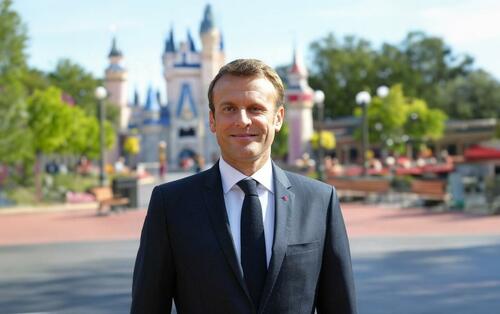“From Disney World To The Real World”: Europe’s Leadership Continues To Fail Its Citizens
By Teeuwe Mevissen, senior macro strategist at Rabobank
While Europe is still reeling from the Munich security conference last weekend, Putin probably couldn’t believe his luck when he saw Trump’s message accusing Ukraine of starting the war and calling president Zelensky a dictator. For the past four years, Europe knew very well that there was a chance that Trump could be re-elected. And during all these years, From a military perspective, European leaders did close to nothing to prepare themselves for a possible second Trump administration. Most notably German Chancellor Scholtz, who spoke of a zeitenwende just days after Russia’s invasion, failed to deliver any meaningful progress in rebuilding Germany’s army and its defence industry. And now the chickens have come home to roost.
While it is the new US administration that seems to shock the European elites the most right now, they should actually fear their own inaction, lack of urgency, can’t do mentality and in some cases the inability to overcome national interests. On top of that we see a lack of strategic thinking, apathy, panic and victimhood. All of this points towards a theme that we have often discussed. Europe continues to be plagued by a leadership crisis and does not do what is considered to be the core tasks of any government: protecting its citizens and their belongings. All this leads to one conclusion. Europe needs to grow up, leave Disney world and come to terms with this new world.
Illustrative of this new world is the inability of G7 countries to agree on a common statement. The US has opposed the phrases that mention “Russian aggression,” which were included previously in statements of support released on 24 February. All this would have been unthinkable until recently.
But there is more for Europe to worry about. This weekend, Germany will hold elections and the far right AfD is polling to win about 20% of the votes, doing especially well in the Eastern part of the country. A complex formation of a new government could further delay much needed decision making within Europe on crucial areas like defense cooperation and complying to more ambitious and realistic NATO spending targets. Read more in our special covering the German elections.
And Europe faces more than security challenges alone. It’s manufacturing sector is still struggling with high energy prices and lots of red tape. This has led to a prolonged period were sentiment in the European manufacturing sector can only be described as pessimistic. That pessimism may now be bottoming out, but we don’t expect a rapid rebound. Today’s first estimate of the manufacturing PMI for Germany came in at 46.1. That’s slightly better than the 45.5 that was expected, some improvement from the 45.0 reading for January.
France also saw a some improvement of sentiment within the manufacturing sector with a figure of 45.5 compared to 45.3 expected and 45 for January. While sentiment in the manufacturing sector slightly improved, the French services sector came in at a very disappointing 44.5. The S&P report noted: “The services sector is a cause for concern, with a significant downturn in activity compared to the previous month.” The data present a weak picture of the sector at the start of 2025. Order intakes are shrinking at a rapid pace and future activity expectations remain well below the historical average. That’s weighing on French hiring, and we saw substantial layoffs in February.
Earlier this morning there was more positive news coming in from the UK which showed that British consumers spent considerably more than was expected. However this was after very disappointing retail sales during the all-important holiday month of December. Furthermore consumer sentiment continues to remain weak.
Tyler Durden
Fri, 02/21/2025 – 10:50

